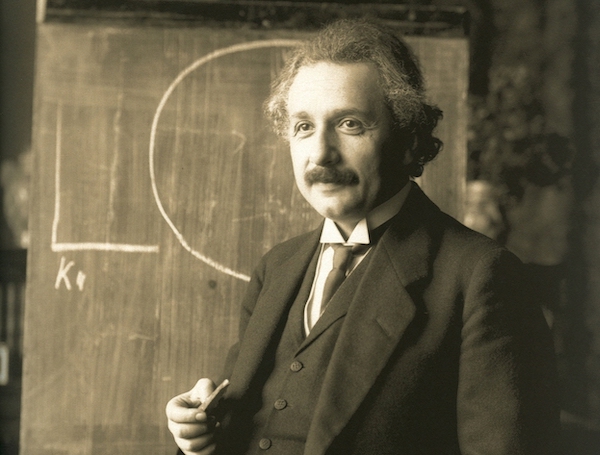Editing brilliant thinkers

I’ve been working with brilliant thinkers this month. Their brilliance doesn’t make them great writers — in fact, it sometimes gets in the way.
The brilliant thinker often falls into what you might call the professor mode. After studying a subject in great deal — and often after accumulating massive amounts of experience — they know more about a subject than anyone else. The knowledge is an unbounded collection of intricately connected facts, insights, experiences, stories, and examples.
Talking to someone like this about their area of expertise is fascinating. You ask a question. They reveal some unsuspected fact or insight. This leads to another question, after which they reveal another insight. It’s like wandering through a museum in which each room has treasures and doorways to other rooms with other treasures.
When they write, the ideas tumble out as one connects to the next. The brilliant writer has so much to say. Often, the problem is not getting the words out on paper. It is that from the reader’s perspective, those words don’t connect with the problem the reader is trying to solve. The writer is trapped in their own massive collection of insights, and something — ego? — prohibits condensing and editing those insights.
The editor faced with this rambling collection has a problem, because the insights are valuable, and the writer rightly resists pruning them. They all hang together. But for the reader, there is no easy way in or out, and lots of ways to get lost.
Writing — at least writing that’s intended to be helpful — can’t be like wandering from room to room. It needs a starting point and a map. People need to have confidence that they know where they’re going and why.
The big idea
Editing — in the form of culling and shaping — won’t solve this problem.
Instead, the editor must step back and ask this question:
What is your big idea?
The more you know, the harder this question is to answer. The most basic truth seems trivial. It often requires several iterations to get to something that is profound, but simple. But it is always there.
A crucial asset in this quest is, surprisingly, ignorance. The editor does not (and ought not) know too much about the subject area. The editor therefore asks questions that seem dumb, like “Why is this important?” and “Can you explain it more simply?” One of the simplest techniques is to just say “I don’t understand,” and then just listen carefully (and repeat until something that sounds crucial and powerful tumbles out).
The writer knows their big idea. They just don’t know yet which of their many ideas is the big one. That’s the first thing you help with. This is the process I call idea development, and it’s central to writing a book about anything.
The central idea must be big, new, and right. If it’s too small, or already out there, or not provable, then it still needs work.
Once you have the big idea, you can work on titles and subtitles and get started with organizing content.
Don’t stop with the big idea
A brilliant writer armed with a big idea is dangerous. They can go off in any direction, and will. You’ve just identified the lobby of the museum, which is not the same as a map for navigating through it.
After the big idea comes a structure. What are the subsidiary ideas? How will you prove the idea is true? What are the consequences of all those ideas?
Academics might stop there. But the best writers do not limit themselves to academic treatises. They must consider what these ideas mean for the reader, and provide advice on how to act on the ideas.
We all remember in school the elements of what we were learning that were “left as an exercise for the reader.” But leaving the practical consequences as an exercise is negligent. The reader has enough work to do with understanding the big idea and applying it in their particular situation. The writer has to tell them how to act on the idea, not leave that as an exercise.
Bridging the gap between the brilliant writer and the eager reader is among the most valuable things an editor can do. There is so much brilliance in the world that is not accessible, and therefore lost to the mass of potential readers. If you can tease out the big idea, build some structure, and connect the brilliant insights to practical consequences, you are doing something powerful and good. Your brilliant writers — and their readers — will be grateful, even if they have no concept of the role you played as an editor and coach.